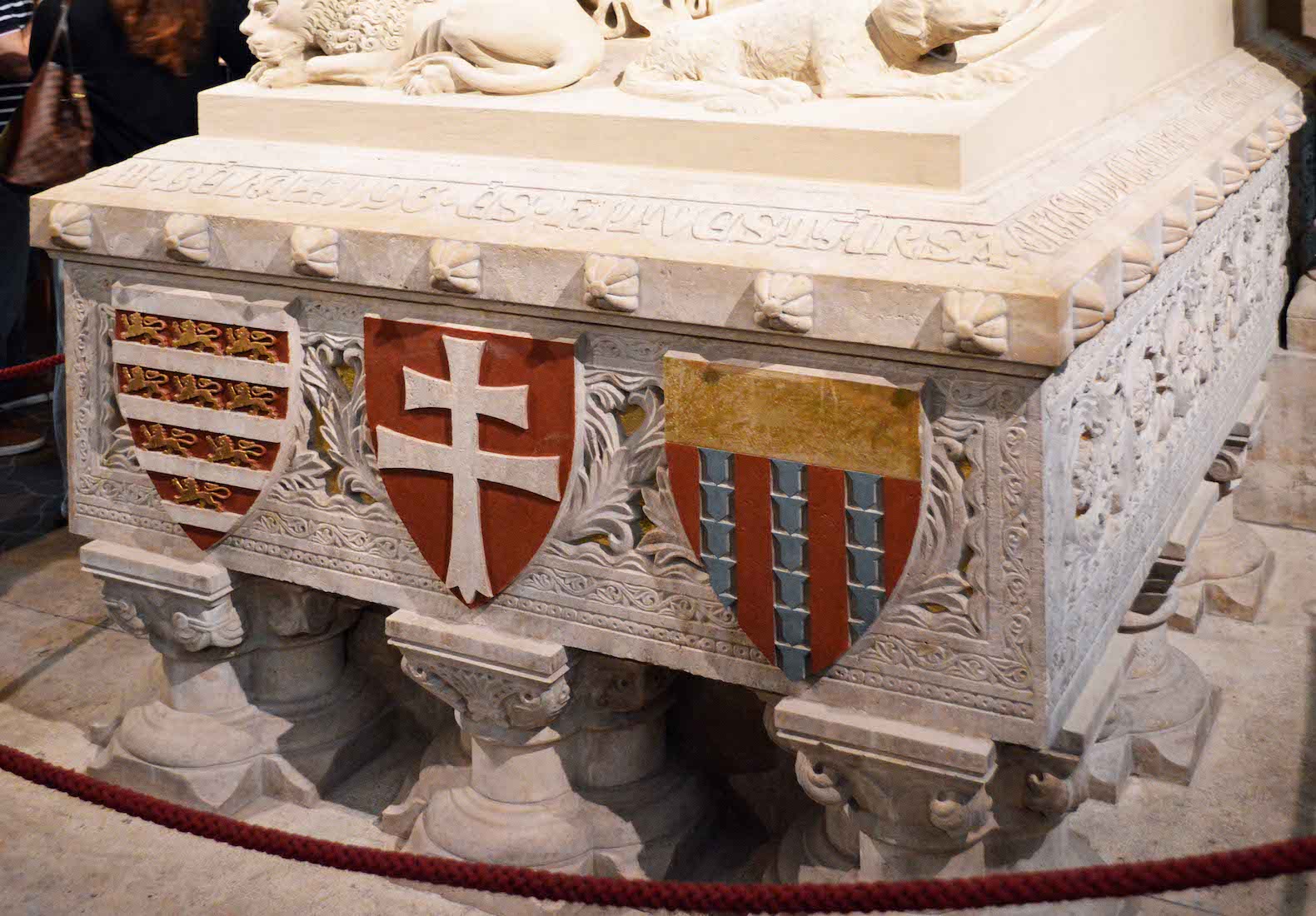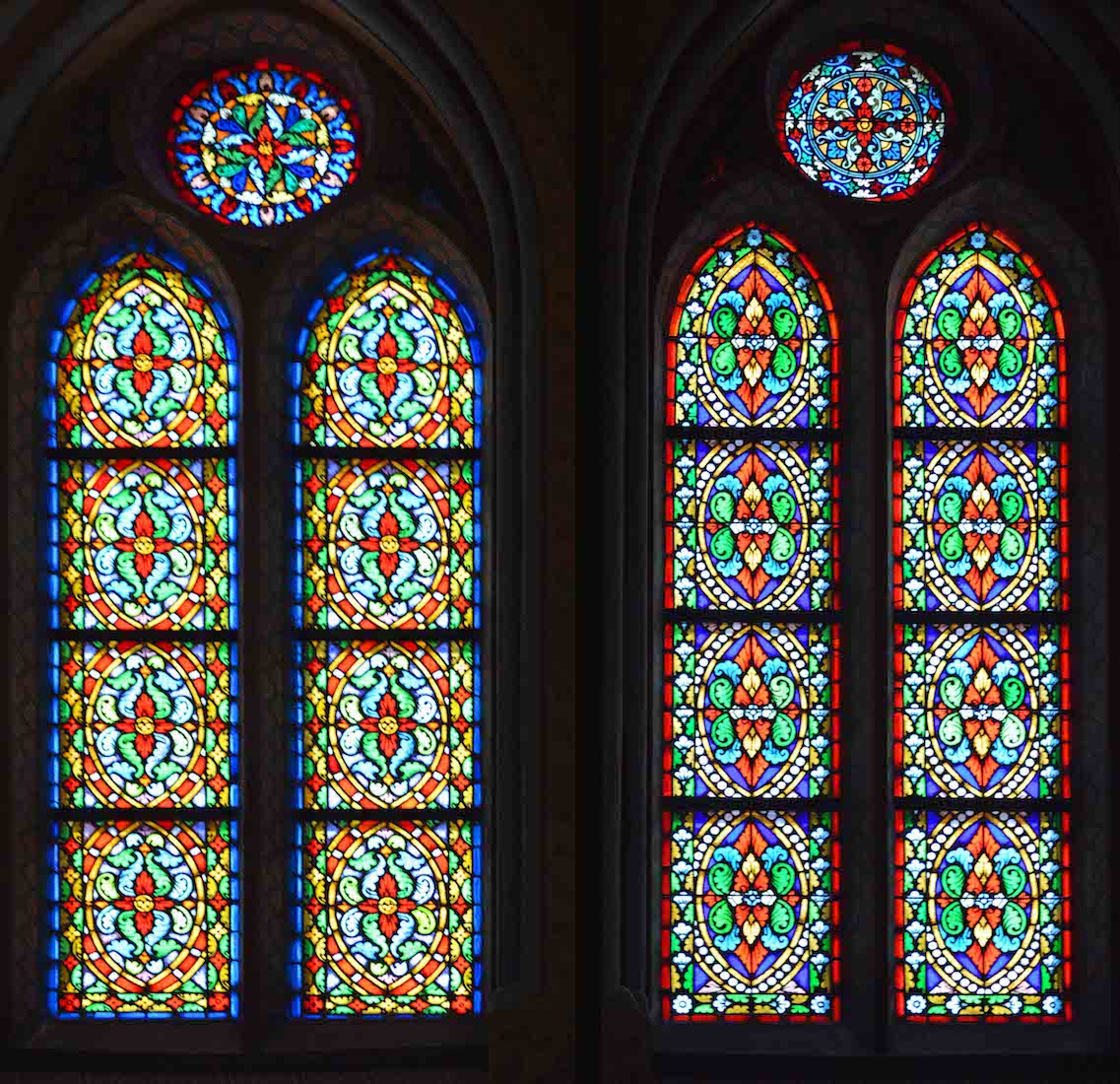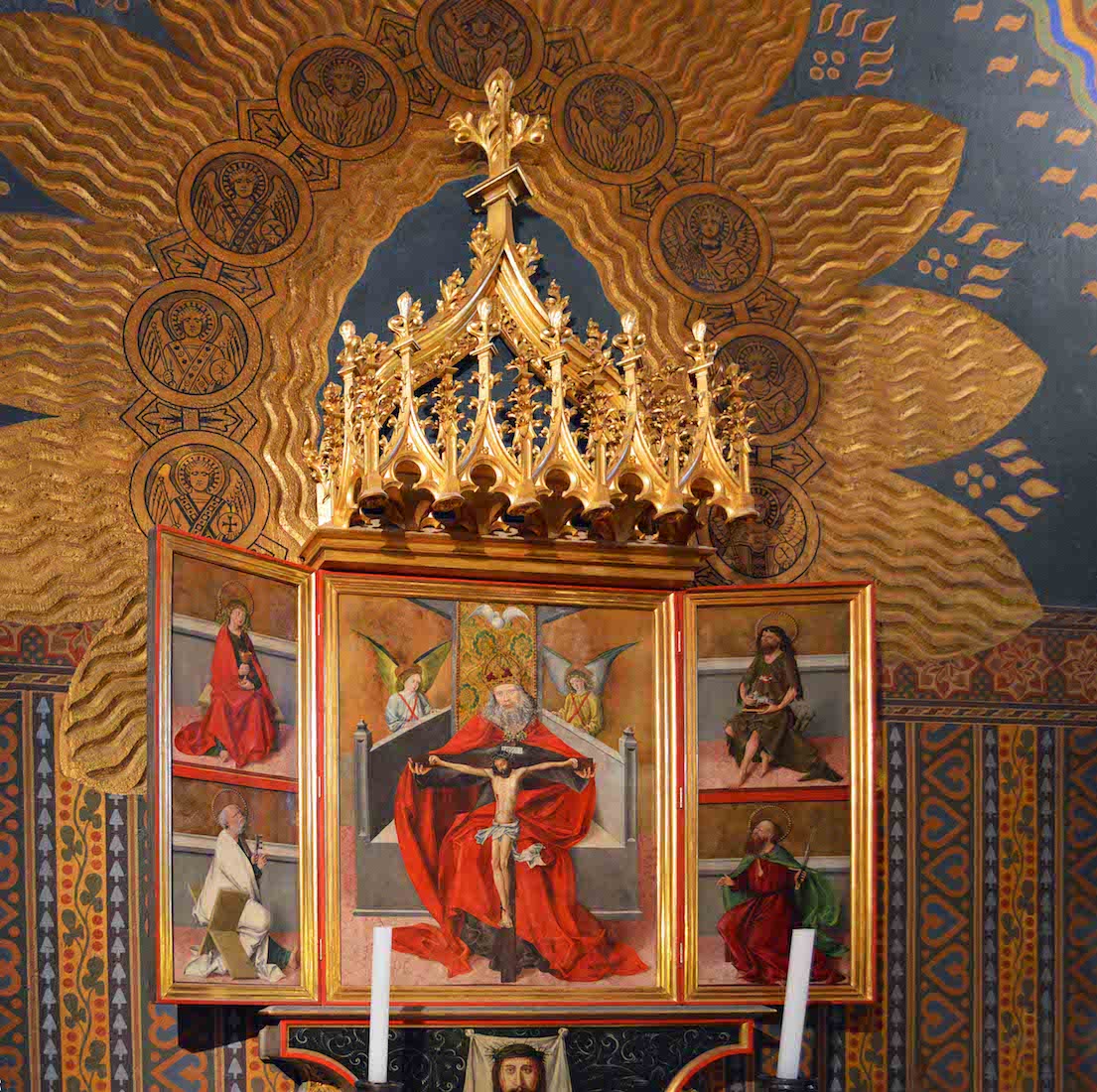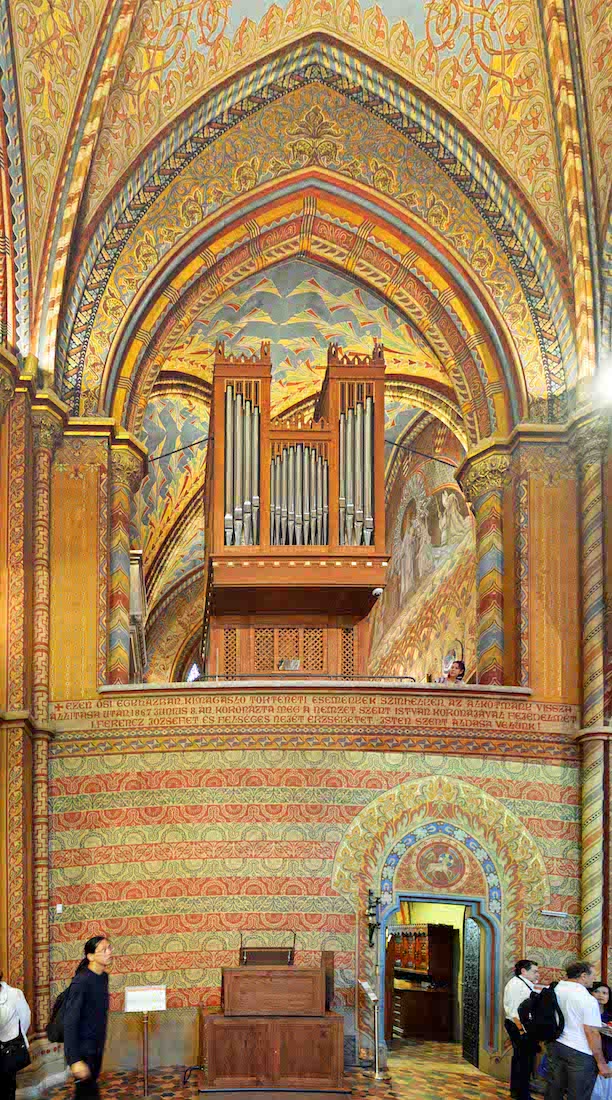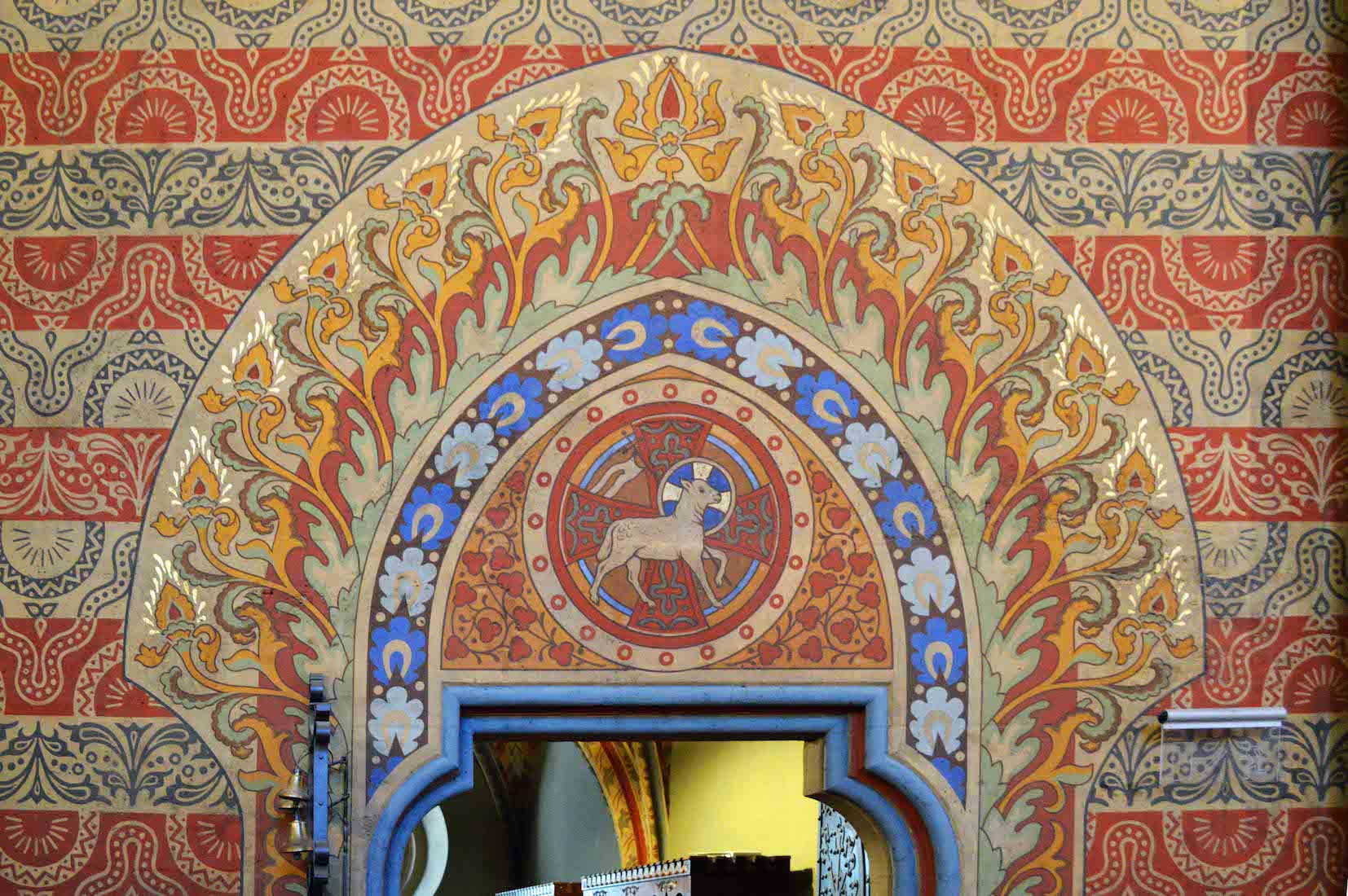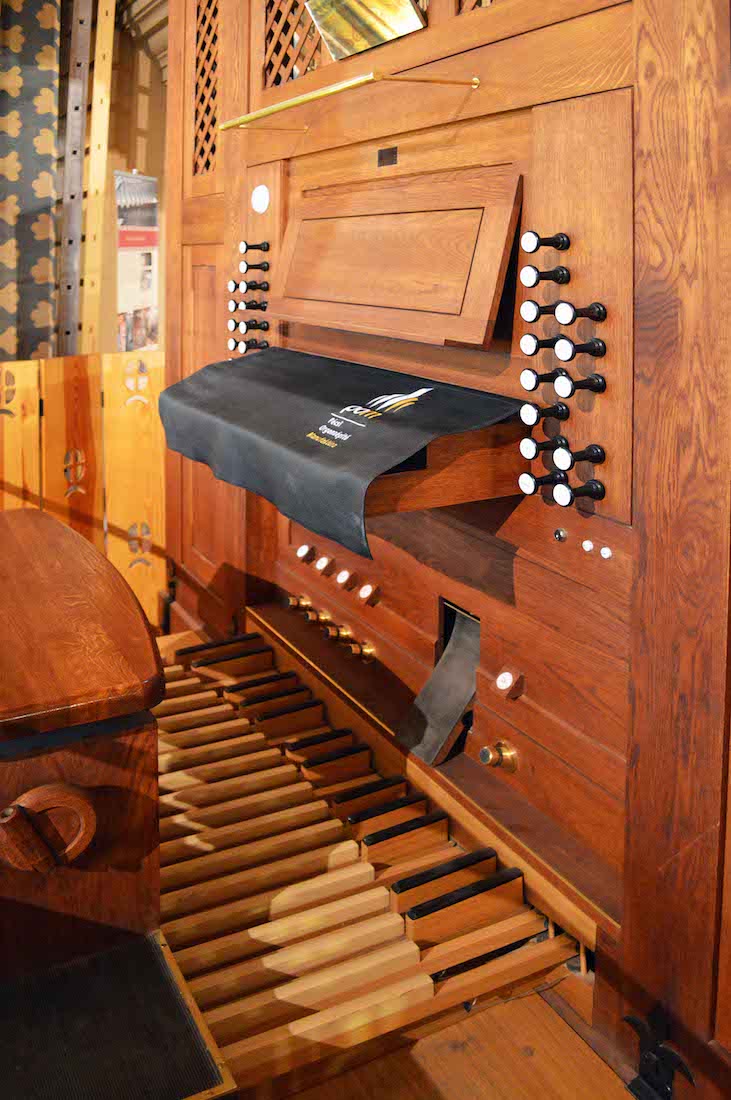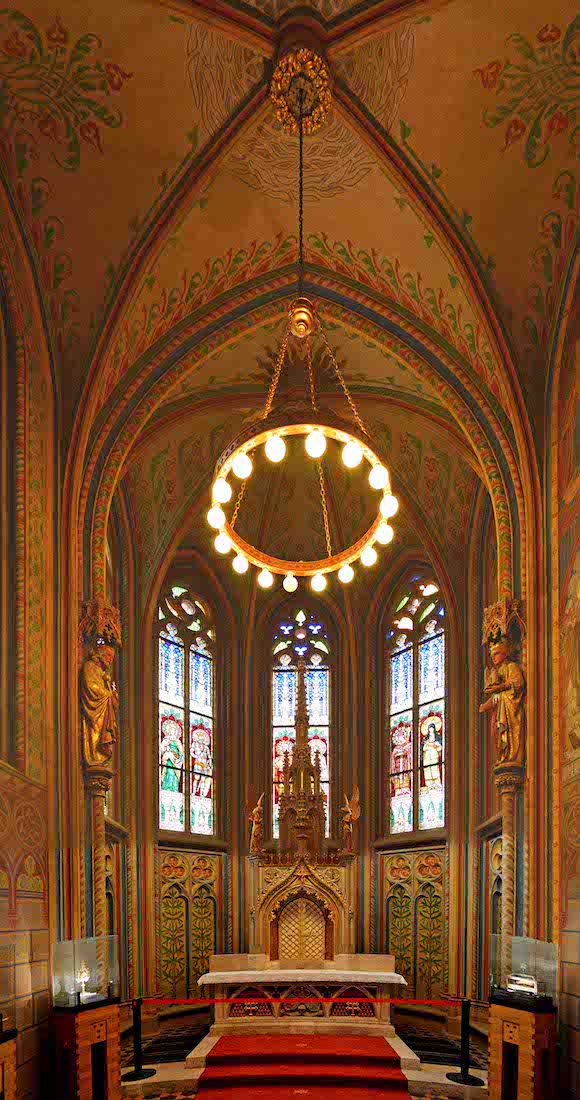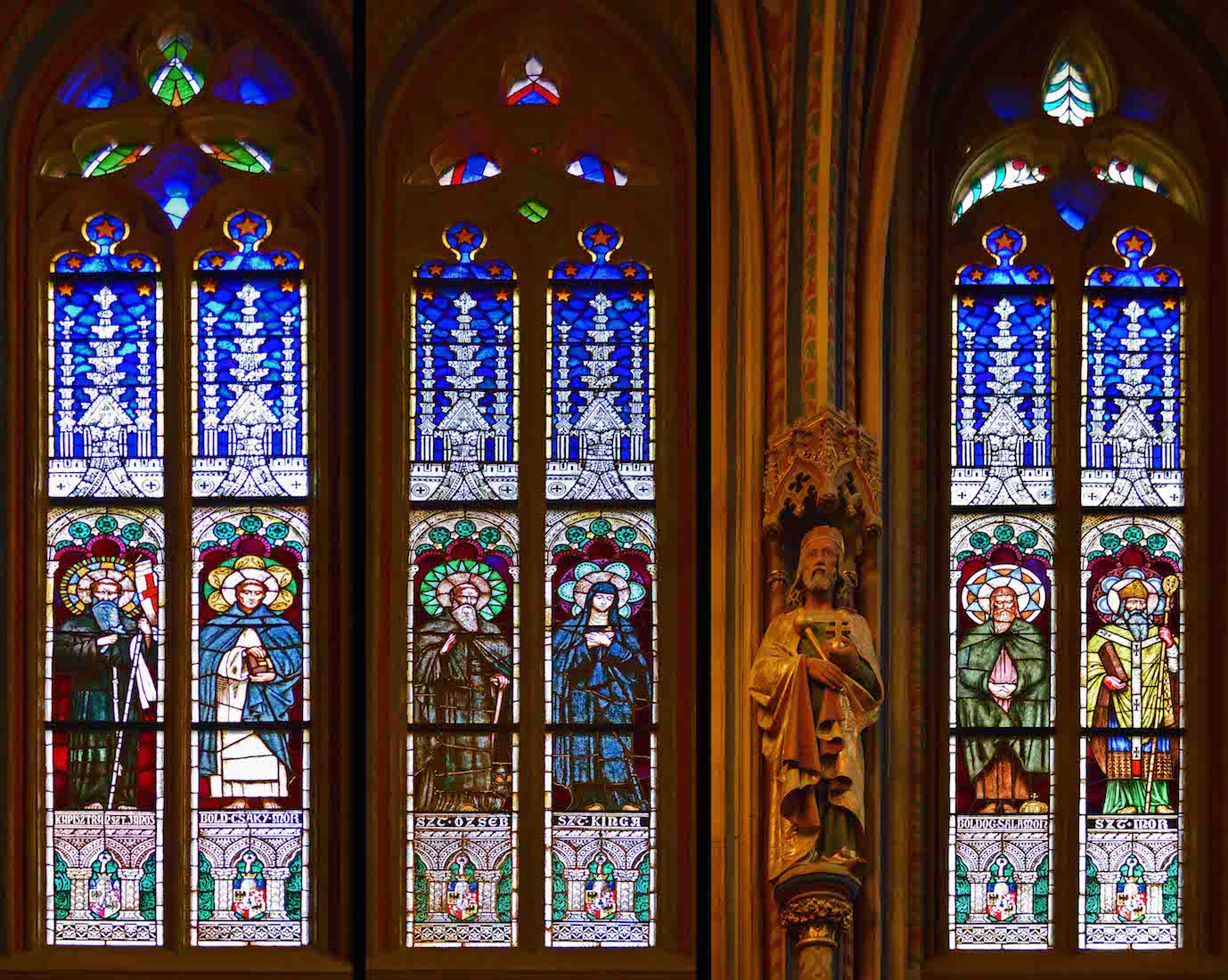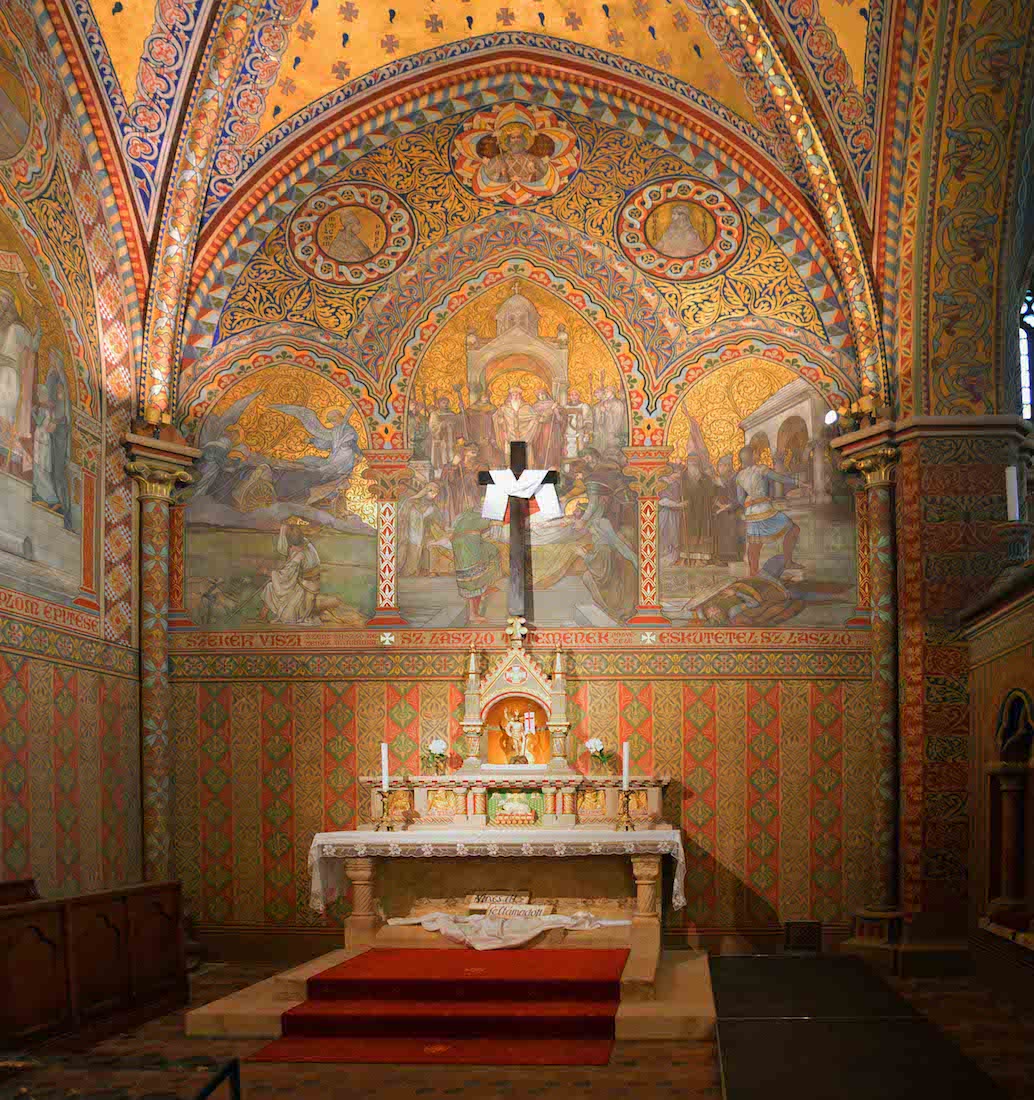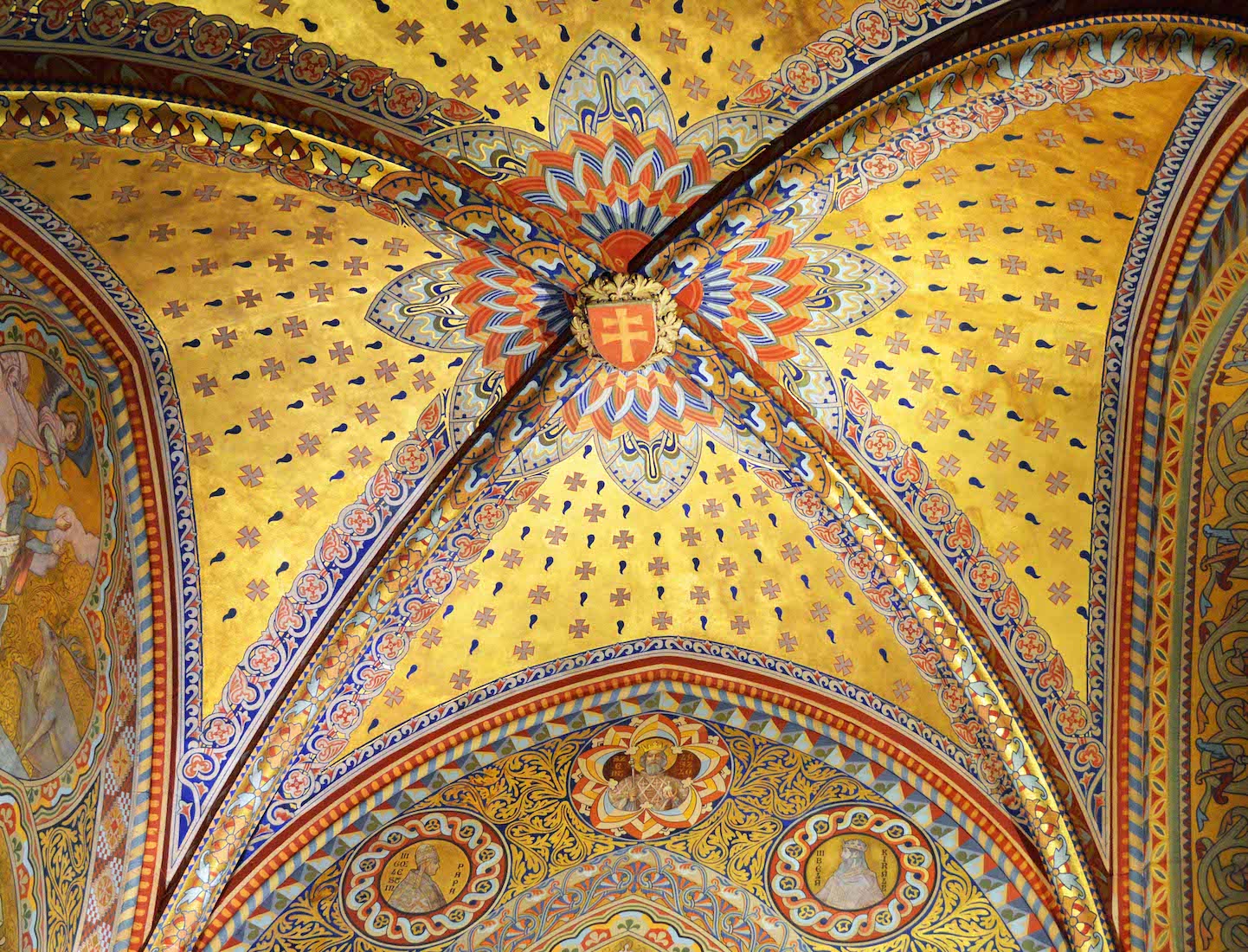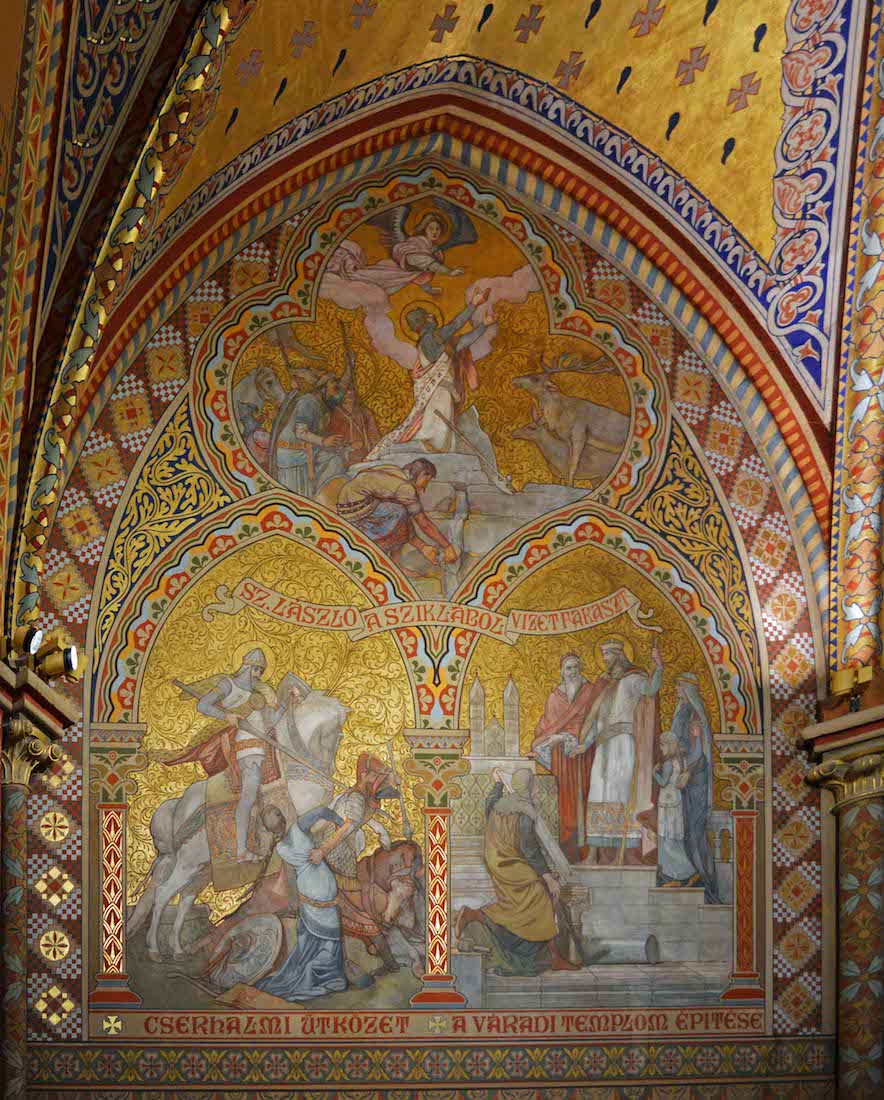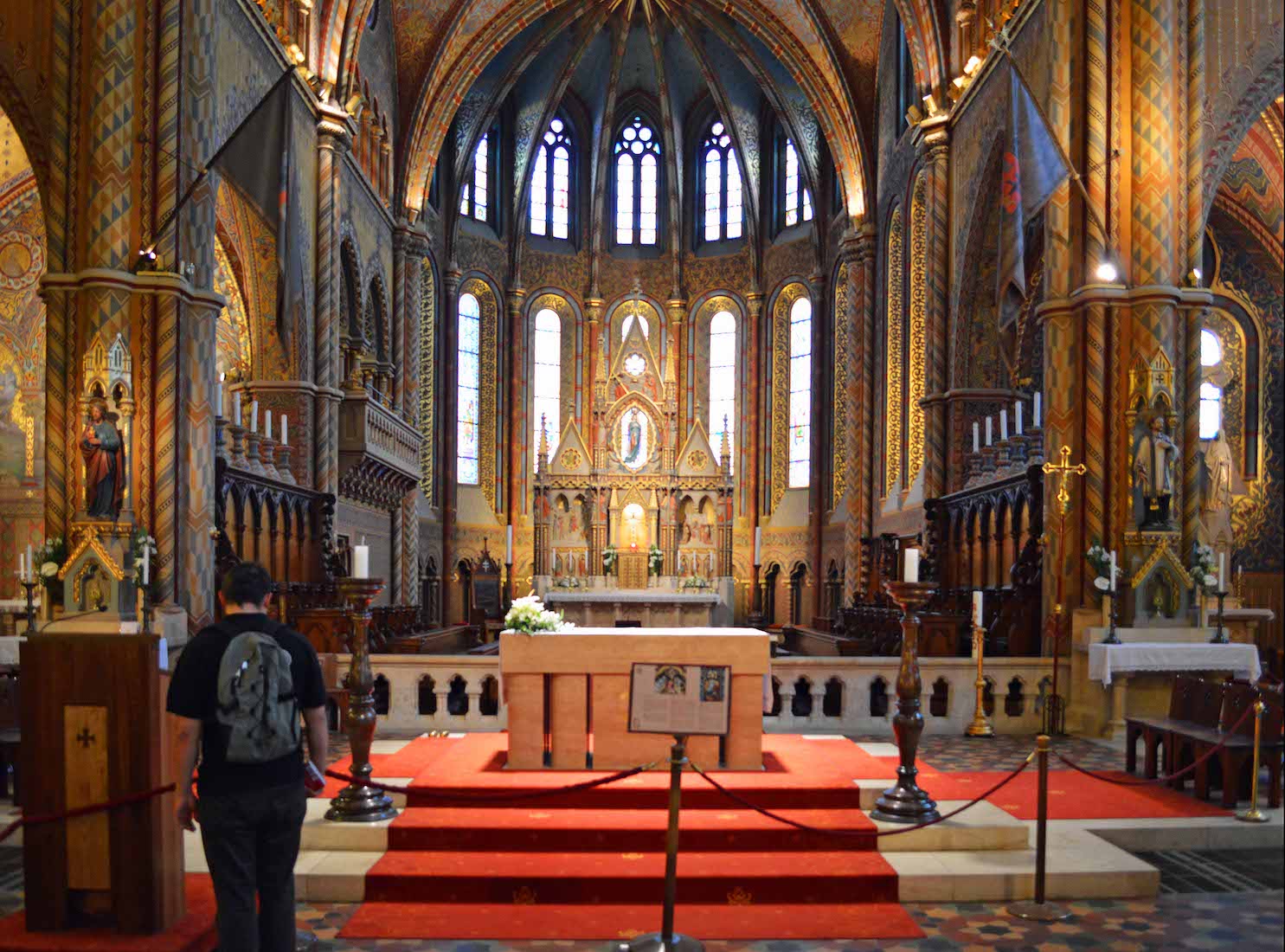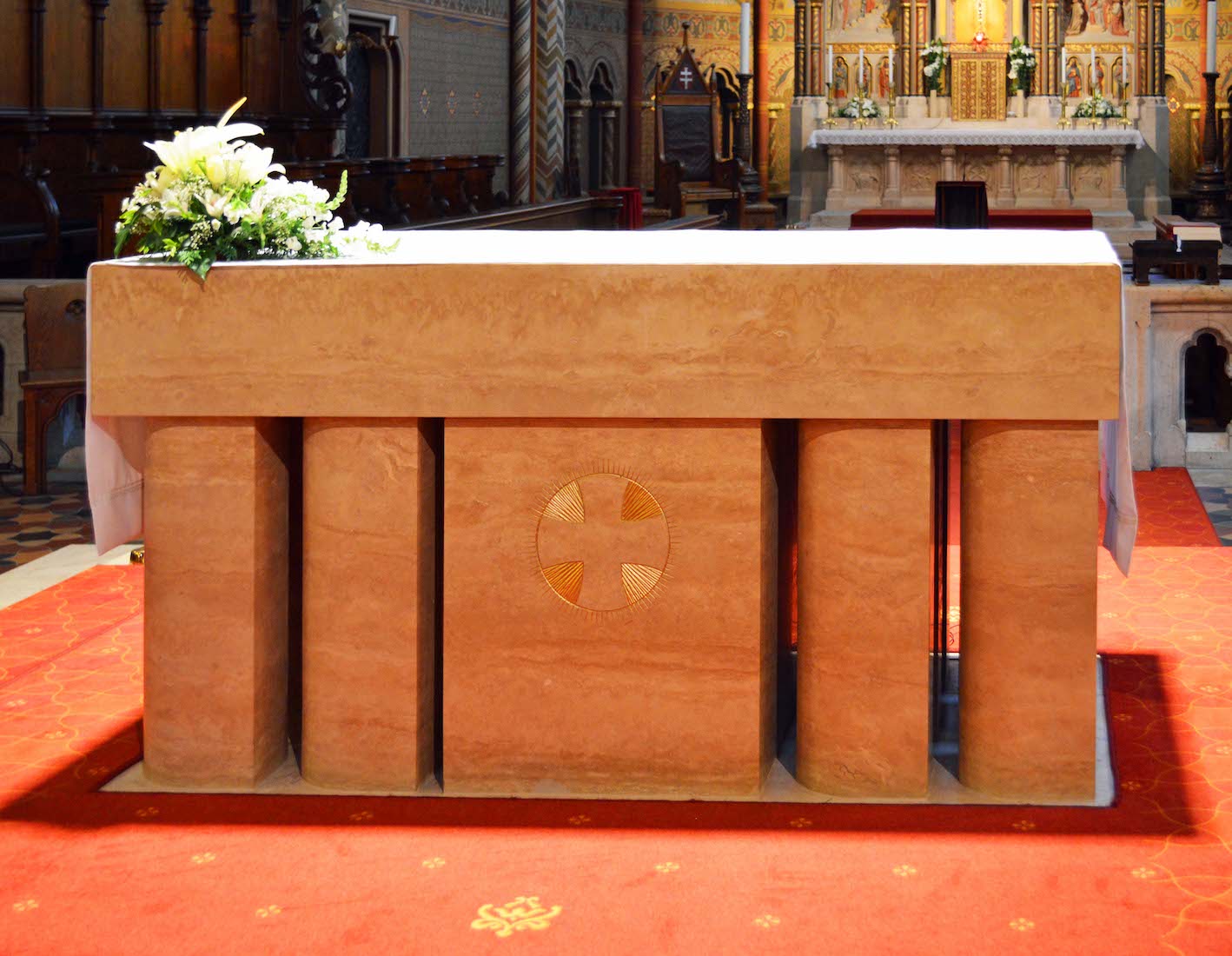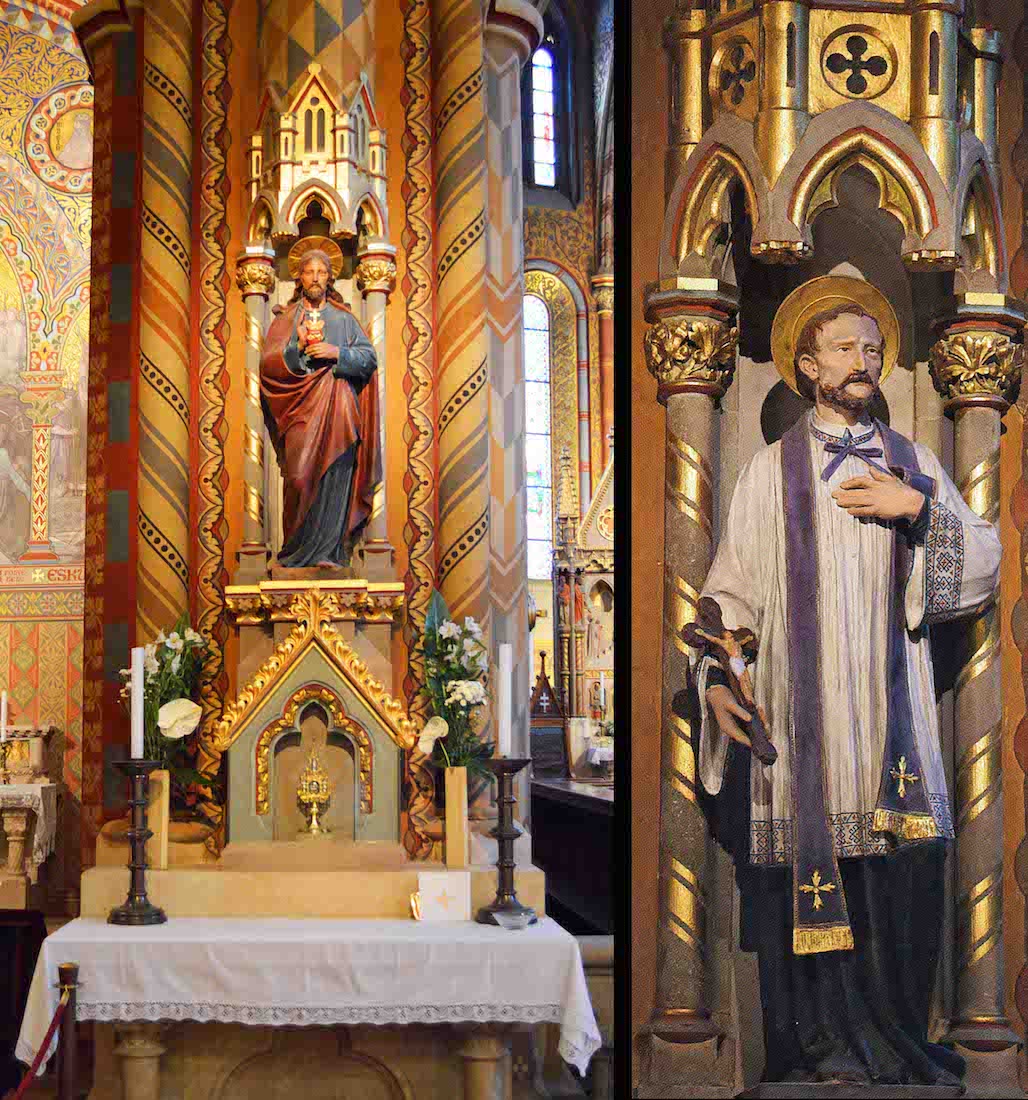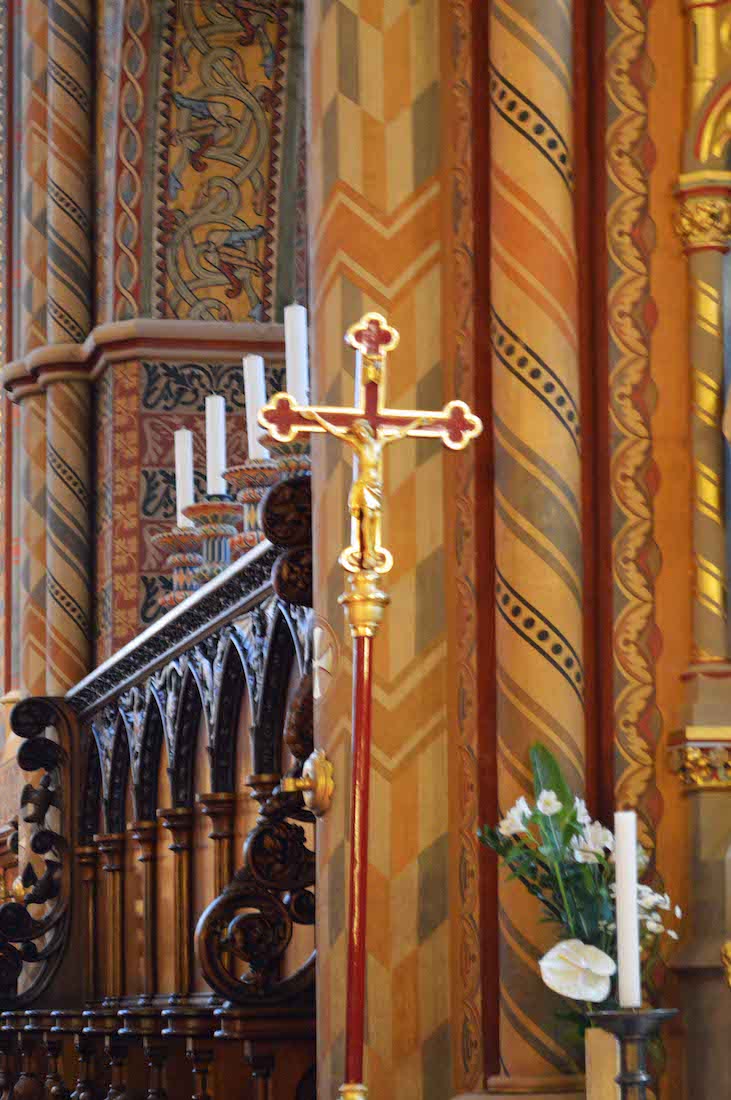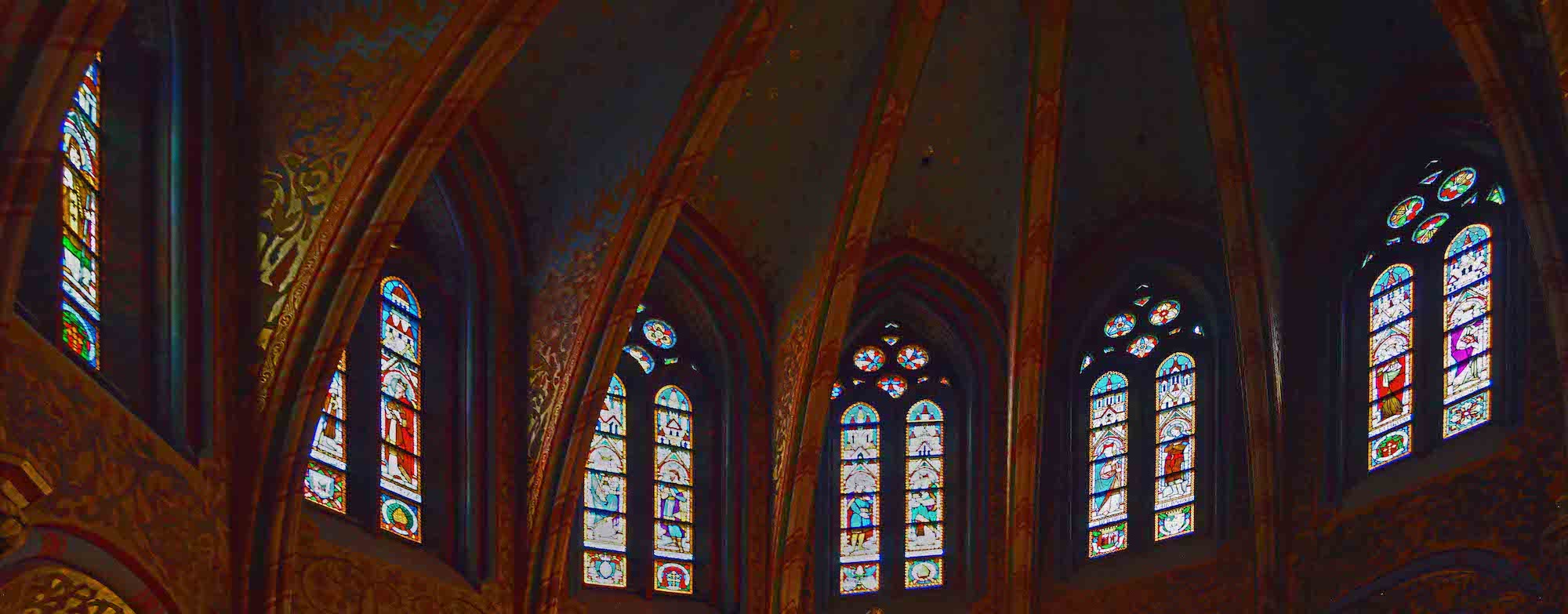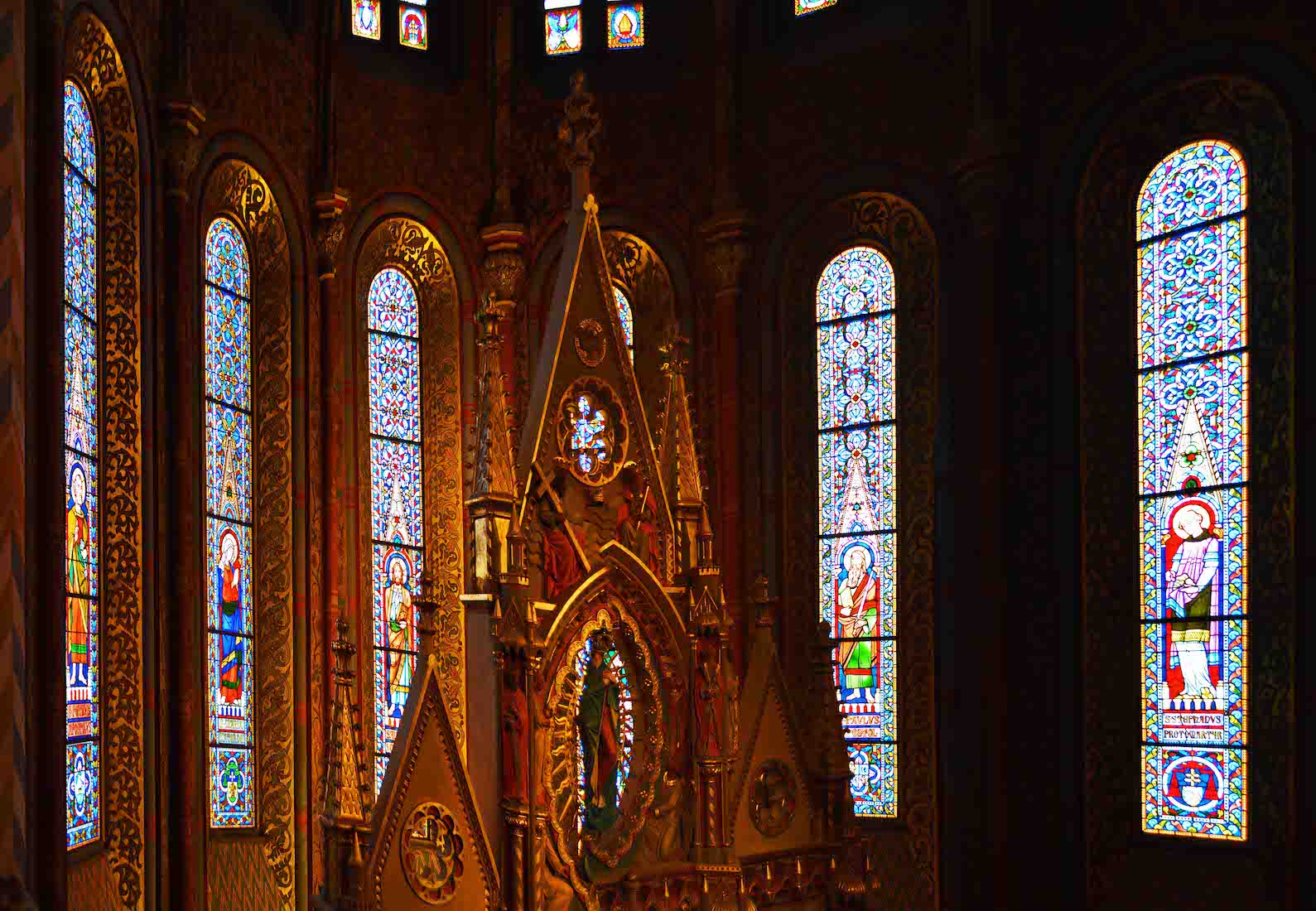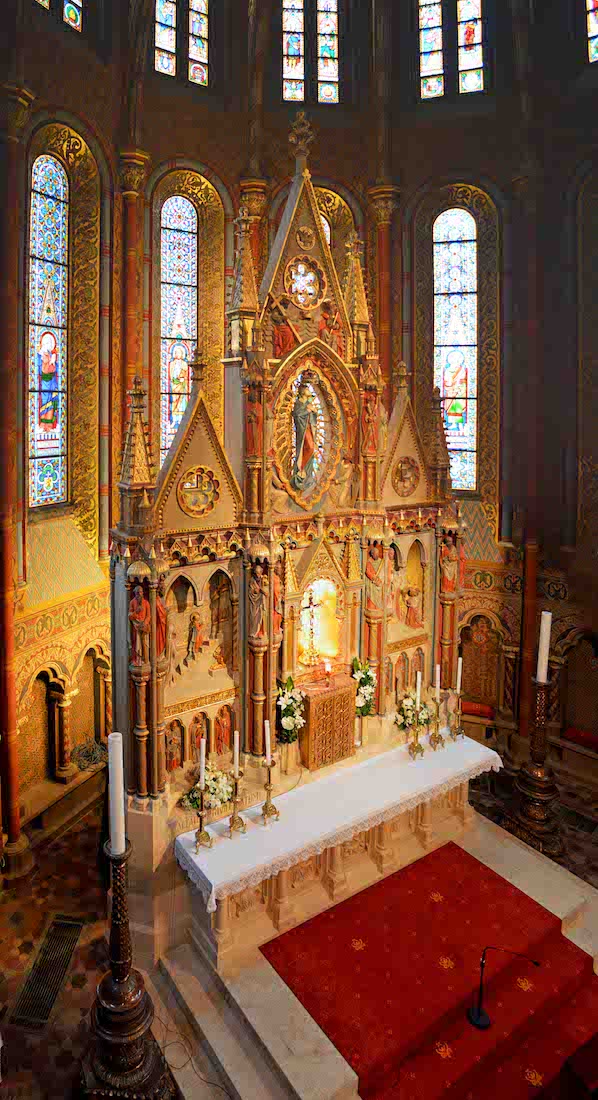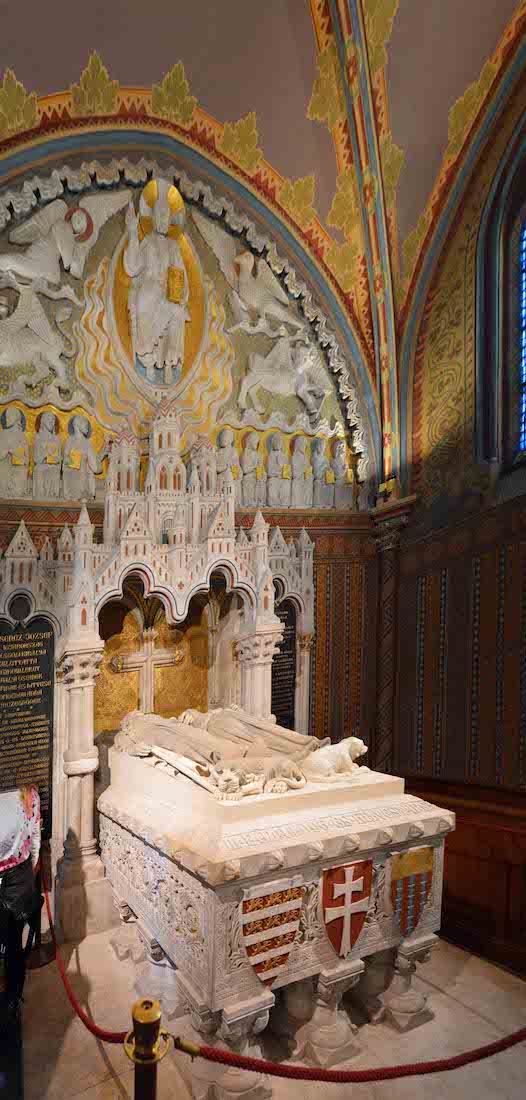
The tomb of King Béla III and his wife is against the West wall of the chapel. The sarcophagus bears a true to life image of the King: remains show him to have been very strongly built and standing at least a head higher than those around him. Queen Anne lies beside him. PLAN
42. BEHIND THE TOMB
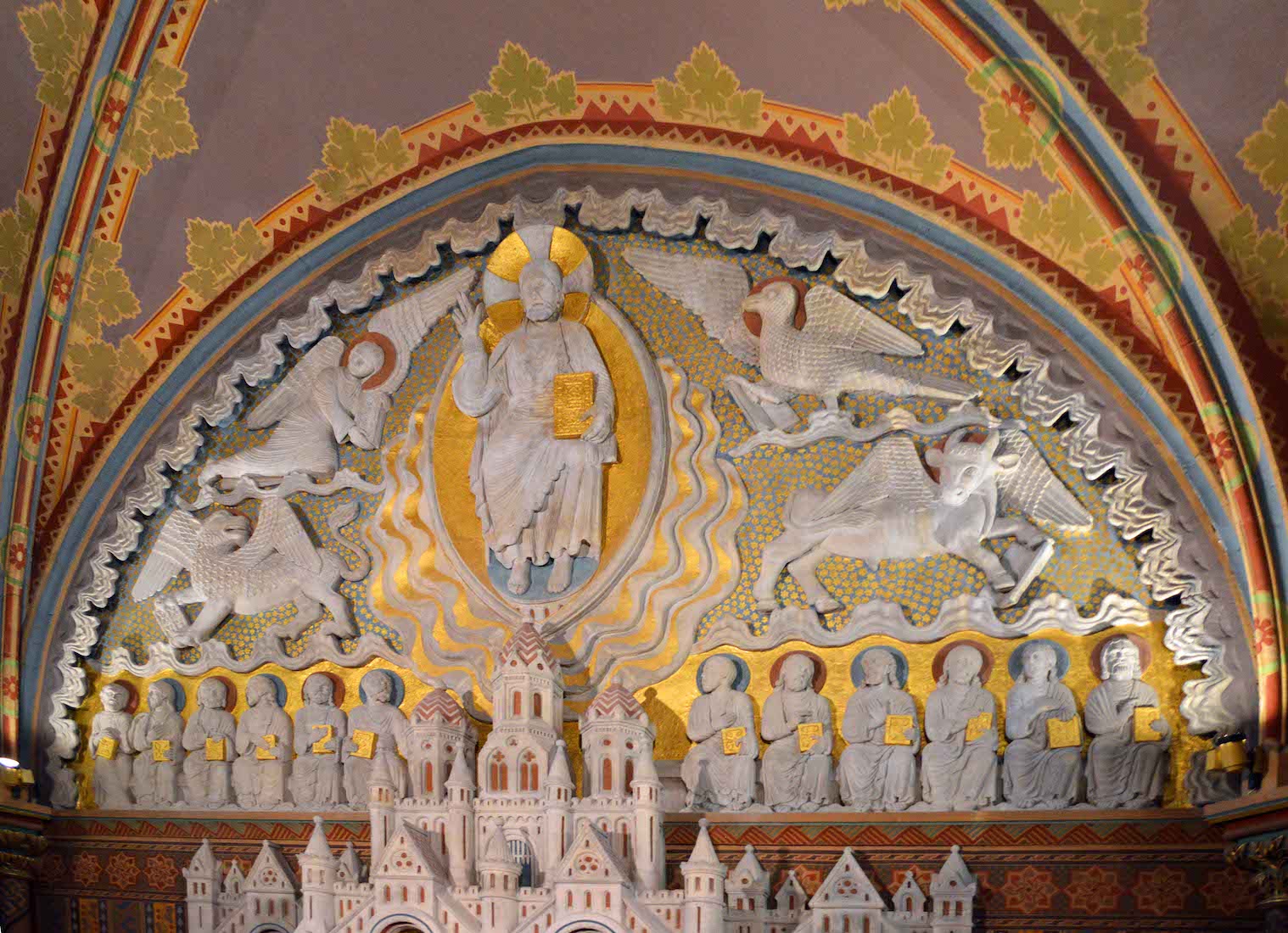
What do we have behind the tomb? The Risen Christ at centre, surrounded by the symbols of the Four Evangelists (the Angel, winged Lion, winged Bull, and Eagle). Below stand the Twelve Disciples, and in front, the New Jerusalem.
43. BASE OF TOMB
Across the end of the tomb of King Béla III and his Queen are three coats of arms. The central one is the coat of arms of the Kingdom of Hungary.
44. BÉLA III CHAPEL WINDOWS
The windows in this chapel are similar to those in the St Emeric Chapel, having a simple repeated floral pattern. This chapel is sometimes called the Trinity Chapel.
45. WINGED ALTAR
Opposite the Royal tomb in the Béla Chapel stands this medieval triptych. The central picture represents ‘The Throne of Mercy’ with the Father holding his Son on the Cross and the dove representing the Holy Spirit above. Looking on are the Apostle John and John the Baptist, and the apostles Peter and Paul.
46. SMALL ORGAN
Beyond the Béla III Chapel, the North aisle passes a small organ. There appears to be a small console below, but the main console is up on the gallery close to the pipes. The walls are highly decorated, of course.
47. LAMB OF GOD
The small door at right is decorated in an elaborate design centred on the Lamb of God. This door leads past a staircase up to the Treasury which we shall explore later, and to St Stephen’s Chapel.
48. SMALL ORGAN CONSOLE
From the gallery we gain this view of the small organ console.
49. ST STEPHEN’S CHAPEL
St Stephen’s Chapel stands on its own, connected across to the chancel by the sacristy. By the 1880s, only the foundations remained of the Gara family’s original 15th Century Gothic funeral chapel, so Frigyes Schulek built the present Neo-Gothic chapel in its place. King Stephen and Queen Elizabeth look down from the sides.
50. ST STEPHEN CHAPEL WINDOWS.
As well as the three apse windows in this chapel, there are three North facing windows. These depict various saints. From left: St John of Capistrano (1386 – 1456); Bold Csáky More (died 1336); St Özséb (Eusebius of Esztergom; St Kinga of Poland (daughter of King Béla IV); King Solomon; St Mor.
51. ST LADISLAUS’ CHAPEL
This Chapel lies at the East end of the North nave aisle. Sainted King Ladislaus ruled between 1077 and 1095. He was the classical figure of a medieval knight, leading his troops with acts of chivalrous heroism, some of which are illustrated here.
52. CHAPEL CEILING
The highly decorated ceiling of the Ladislaus Chapel has the Hungarian coat of arms in central position.
53. CHAPEL FRESCO
These frescos show Ladislaus on a white horse rescuing an Hungarian girl; striking water from a rock (at top); and building up the church.
55. NAVE ALTAR
The nave altar is attractive, if relatively plain. In the 1960s the Council of Vatican II decreed that churches should administer the Eucharist from a central altar which is close to the people. This explains why there are two altars here.
56. SIDE STATUES
Two statues face the congregation from the front chancel columns. At left is a statue of Jesus as ‘The Sacred Heart’. At right is a ceramic statue of St Francis Xavier. [Church photograph]
57. PROCESSIONAL CRUCIFIX
The crucifix on the right hand side is used to lead various processions within the Church.
58. SANCTUARY CLERESTORY WINDOWS
There are in fact seven high windows above the sanctuary. They give colour and light, but what do they depict?
59. SANCTUARY WINDOWS
There are also seven lower windows in the sanctuary. It is difficult to get close to these: because of the large number of visitors, the public do not have access to the chancel or sanctuary, so the most often seen views are from the North gallery.
60. HIGH ALTAR
The Neo-Romanesque high altar was designed by Frigyes Schulek. We note the crucifix with the tabernacle below. On either side of the crucifix is a scene from the life of Mary: at left her presentation in the Temple at Jerusalem, and at right the descent of the Spirit at Pentecost. Above the crucifix is a crowned figure of Mary.


